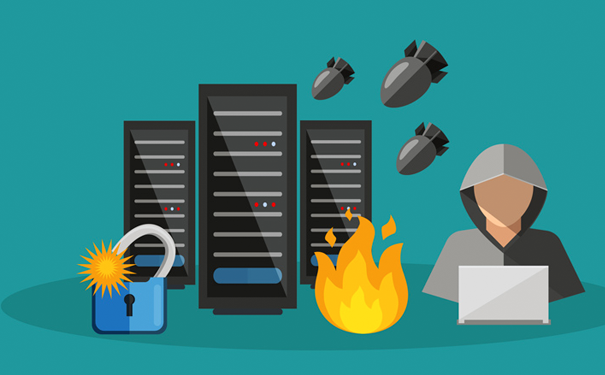How to Prevent DDoS Attacks?
Distributed denial of service (DDoS) is one of the most popular forms of cyberattacks. DDoS attacks are on the rise with an increase in their strength and frequency. These attacks interrupt normal business operations by corrupting website and application performance and availability, and at times even knocking them offline completely. Websites and web applications need the intelligence and resilience of a scalable network in order to combat the most recent and sophisticated DDoS attacks.
A DDoS attack is used by hackers of all abilities, from professional hackers to the so-called 'script kiddies'. A DDoS attack is to some extent a blunt weapon, sending through tons of traffic in order to prevent the operation of a target server or an organization’s website. That said, the attack can be predominantly effective. One of the reasons why this attack is popular is that it can be extremely economical to execute. There are several DDoS-for-hire groups working on the dark web. These groups are capable of mobilizing a vast botnet army of compromised devices. These attacks can cause financial damage or tarnish the reputations of a brand, and they are also used as a distraction for a more serious attack elsewhere on the victim’s infrastructure.

Types of DDoS Attacks
There are basically three types of DDOS attacks:
Protocol DDOS attack: This DOS attack takes place on the protocol level. This type includes Ping of Death, Synflood, and more.
Application layer DDOS attack: These DDoS attacks target Apache, OpenBSD, Windows, or other software vulnerabilities in order to execute the attack and crash the server.
Volume-based DDOS attack: This DDoS attack includes UDP floods, ICMP floods, and several other kinds of floods performed through spoofed packets.
Comodo cWatch Preventing DDoS Attacks
To protect yourself from DDoS attacks, you can go in for Comodo cWatch that is one whole solution providing all the necessary measures to protect your website from DDoS attacks, malware infections, and other such threats.
Available with a powerful firewall, this web security tool is capable of eliminating application vulnerabilities and protecting web applications and websites against advanced attacks like Denial-of-Service (DDoS), Cross-Site Scripting, SQL Injection, and many more. Combined with vulnerability scanning, malware scanning, and automatic virtual patching and hardening engines, the Comodo WAF provides strong security that is wholly managed for customers as part of the Comodo cWatch Web solution.
DDoS Protection
Besides providing a strong firewall, the Comodo cWatch web security tool also provides the following key features:
Cyber Security Operations Center (CSOC): The Comodo CSOS is staffed with certified security analysts to monitor, assess and defend applications, databases, websites, servers, networks, desktops, data centers, and other endpoints for customers. Using a modern facility and Comodo cWatch technology, the CSOC checks for threats, detects and analyses them and then executes the necessary actions.
Secure Content Delivery Network (CDN): The Comodo CDN is a network of globally distributed servers designed to enhance the performance of websites and web applications by delivering content using the closest server to the user and is proven to increase search rankings.
Malware detection scanning, preventive methods and removal services: These services enable organizations to adopt a proactive approach to protect their business and brand reputation from malware infections and attacks. Comodo cWatch Web is capable of identifying malware, providing the methods and tools to remove it, and preventing future malware attacks at the edge before it hits the network.
PCI Scanning: Comodo cWatch Web provides online merchants, businesses, and other service providers handling credit cards online with an automated and simple way to stay compliant with the Payment Card Industry Data Security Standard (PCI DSS). It ensures that payment cardholder information is protected from possible security breaches via meticulous network and application scans to detect and fix security vulnerabilities.
Security Information and Event Management (SIEM): The SIEM provides advanced intelligence that can leverage current events and data from 85M+ endpoints and 100M+ domains.





